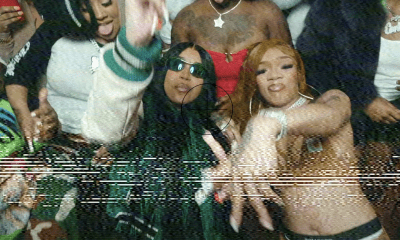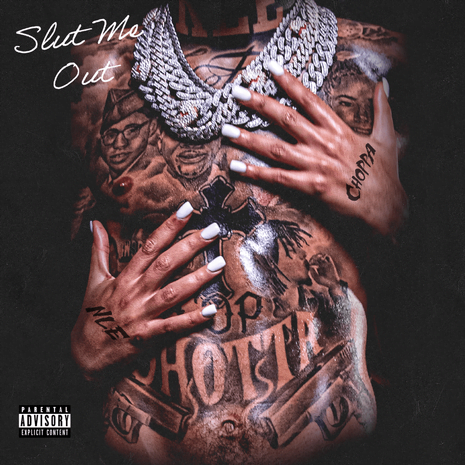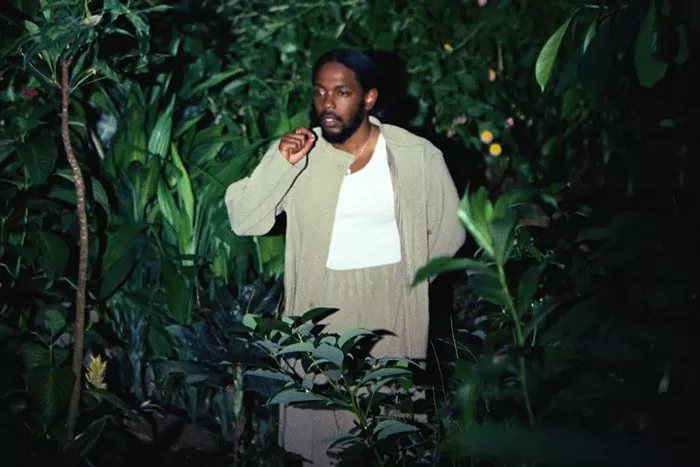Editorial
Latin Hip Hop: Challenging Stereotypes, Redefining Culture, and Making Global Waves

Latin hip hop has experienced a remarkable surge in mainstream success, captivating audiences worldwide and challenging conventional notions of music and culture. This article explores the factors that have contributed to its rise, the impact of collaborations with mainstream artists, and the genre’s ability to break language and cultural barriers. We also delve into the social impact of Latin hip hop, how artists have challenged stereotypes, and the challenges they face in navigating the industry. Lastly, we examine the genre’s representation in the music industry, notable success stories, and the future trajectory of Latin hip hop.
Factors Driving Mainstream Success
The recent surge in mainstream success for Latin hip hop artists can be attributed to multiple factors. The rise of social media and streaming platforms has provided a global stage for artists to reach broader audiences. Collaborations with mainstream artists, like the groundbreaking “Despacito” by Luis Fonsi and Daddy Yankee, have played a significant role in expanding the genre’s reach. These factors, combined with the growing popularity of Latinx culture worldwide, have contributed to the remarkable rise of Latin hip hop.
Breaking Language and Cultural Barriers
Latin hip hop artists have successfully broken language and cultural barriers, appealing to audiences beyond the Latin American community. Bilingual lyrics and collaborations with mainstream artists have allowed artists to connect with diverse listeners. Artists like Bad Bunny and J Balvin seamlessly blend Spanish and English in their tracks, fostering cross-cultural connections. The collaborative track “I Like It” by Cardi B featuring Bad Bunny and J Balvin exemplifies the fusion of Latin trap and reggaeton with mainstream hip hop, introducing Latin hip hop to a global audience.
Impact of Streaming Platforms and Social Media
The rise of streaming platforms and social media has significantly impacted the visibility and accessibility of Latin hip hop. Artists have effectively utilized these digital platforms to gain exposure and build a fan base. Platforms like Spotify and Apple Music have created dedicated playlists for Latin urban music, facilitating the discovery of new artists. Artists like Bad Bunny have leveraged social media platforms such as Instagram to engage directly with fans, bypassing traditional industry gatekeepers and connecting with a global audience.
Success Factors and Industry Shifts
The success of Latin hip hop cannot be attributed solely to the artists themselves; external factors such as changes in the music industry and shifts in audience preferences have played crucial roles. The industry’s growing recognition of diverse genres and international collaborations has opened doors for Latin hip hop artists. Changes in audience preferences have demonstrated a demand for multicultural and multilingual music, making Latin hip hop more appealing to listeners worldwide. The success of Latin hip hop reflects a shift in the industry’s acceptance and appreciation of diverse voices and genres.
Collaborations: Blurring Genre Boundaries
Collaborations between Latin hip hop artists and mainstream artists from different genres have been instrumental in expanding the genre’s popularity and acceptance. These collaborations have not only introduced Latin hip hop to new audiences but also blurred genre boundaries and created unique musical fusions. The collaboration between Cardi B, Bad Bunny, and J Balvin on “I Like It” brought Latin hip hop to the forefront of mainstream music, topping charts globally. Collaborations like these have challenged stereotypes and showcased the global appeal of Latin hip hop.
Challenging Stereotypes and Addressing Social Issues
Latin hip hop has challenged existing stereotypes and perceptions of Latin American music and culture in mainstream media. Artists have used their platform to address social issues and promote cultural diversity and inclusivity. Puerto Rican rapper Residente addresses topics such as social inequality and political oppression in his music, shedding light on important issues. Chilean-French rapper Ana Tijoux incorporates feminist themes, empowering women and challenging gender norms. Latin hip hop artists aim to showcase their talent beyond being labeled as solely “Latin” artists, breaking down barriers and fostering understanding.
Challenges and Overcoming Stereotypes
Latin hip hop artists face unique challenges as they navigate the mainstream music industry. Breaking through language barriers is a significant obstacle, but bilingual lyrics and collaborations have helped overcome this challenge. Stereotypes and limited opportunities can also be hurdles, but artists have taken steps to combat these preconceived notions. Many have embraced independent labels or self-released music to maintain artistic freedom and integrity. They leverage social media platforms to connect directly with fans and build a loyal following, bypassing traditional industry gatekeepers and creating their own paths to success.
Impact on Recognition and Representation
The global success of Latin hip hop has influenced the industry’s recognition and representation of diverse voices. Major award shows, like the Latin Grammy Awards, have expanded their categories to include urban genres, providing a platform for Latin hip hop artists. Festivals and concerts have also incorporated Latin hip hop artists into their lineups, recognizing the demand for their music. Collaborations with mainstream artists have further blurred genre boundaries, showcasing the depth and versatility of Latin hip hop. The impact of Latin hip hop extends beyond the music industry, influencing fashion, visual arts, and popular culture.
Notable Success Stories and Breakthrough Moments
In recent years, Latin hip hop has seen notable success stories and breakthrough moments that have shaped the genre’s trajectory. Artists like Bad Bunny and J Balvin have achieved international recognition, transcending language barriers and captivating audiences worldwide. Their success has opened doors for other Latin hip hop artists and solidified the genre’s place in mainstream music. These achievements have elevated visibility, increased marketability, and expanded opportunities for collaboration. Latin hip hop‘s growth and recognition have paved the way for further innovation and impact within the industry.
Future Collaborations, Innovation, and Impact
Looking ahead, Latin hip hop is poised to continue pushing boundaries and making a significant impact on the music industry. Future collaborations between Latin hip hop artists and mainstream artists from different genres will result in fresh musical fusions and expanded reach. Innovation within Latin hip hop will include experimentation with subgenres and incorporation of diverse influences. Emerging artists such as Nathy Peluso, Cazzu, and Rauw Alejandro show promise in pushing the genre’s boundaries. Latin hip hop‘s impact will extend beyond music, influencing fashion, visual arts, and popular culture at large.
Top Latin Hip Hop Artists & Their Songs
Bad Bunny:
-Dákiti
-Yonaguni
-Callaita
J Balvin:
-Mi Gente
-In Da Getto
-Machika
Ozuna:
-Criminal
-Taki Taki
-Baila Conmigo
Daddy Yankee:
-Gasolina
-Despacito
-Con calma
Anuel AA:
-China
-Secreto
-Me Rehúso
Maluma:
-Felices los 4
-Chantaje
-Mala Mia
CNCO:
-Reggaetón Lento (Bailemos)
-Se te nota
-Hey DJ
Natti Natasha:
-Criminal
-No Me Acuerdo
-Dura
Wisin y Yandel:
-Aullando
-Rabiosa
-No me dejes solo
Latin hip hop has emerged as a powerful and influential force within the music industry, breaking boundaries, challenging stereotypes, and captivating audiences worldwide. The genre’s rise can be attributed to factors like collaborations, social media, and shifting industry dynamics. With a bright future ahead, Latin hip hop is set to shape the music industry and cultural landscape for years to come.


































